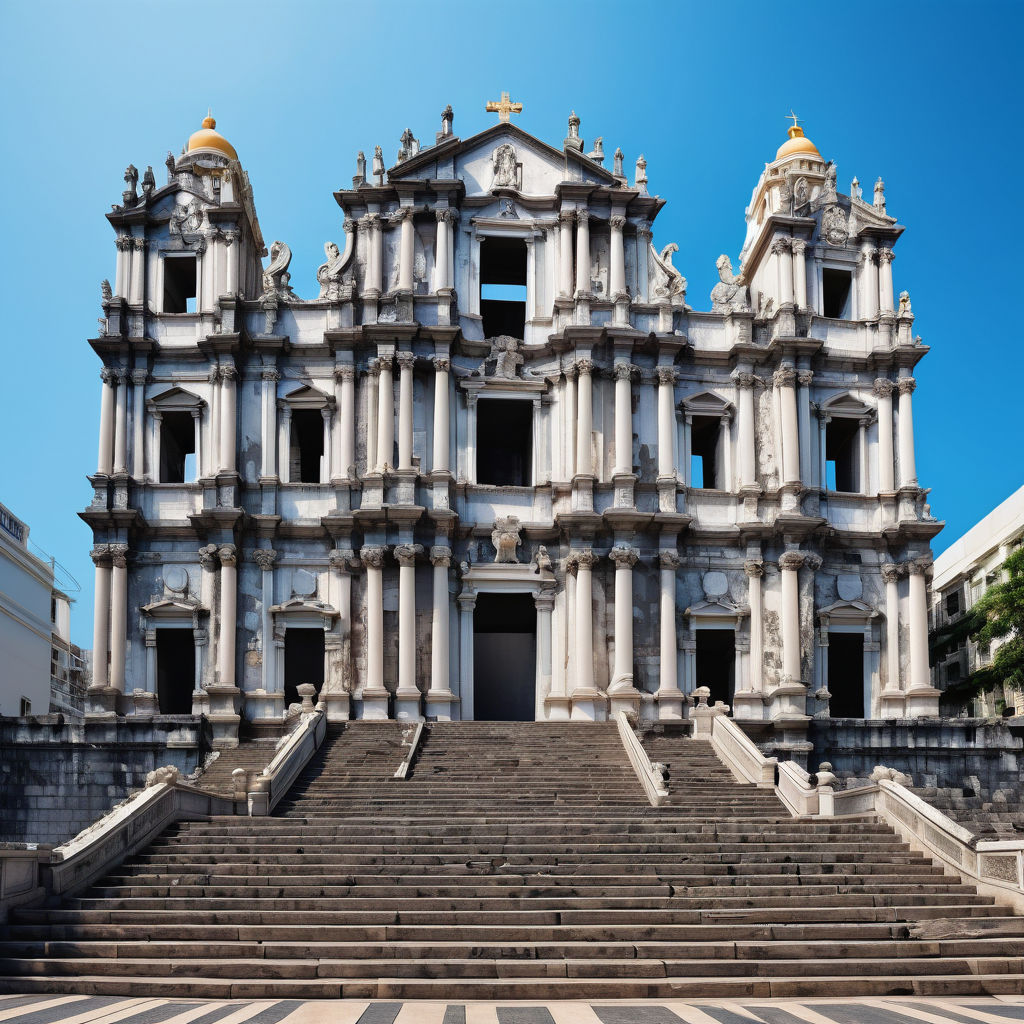Introduction to Macau: East Meets West in Asia's Vibrant Hub
Discover Macau: A Blend of Chinese Roots and Portuguese Influences

Introduction to Macau
Macau, officially known as the Macao Special Administrative Region of the People's Republic of China, is a unique blend of East and West, located on the southern coast of China, across the Pearl River Delta from Hong Kong. It consists of the Macau Peninsula, Taipa, and Coloane islands, connected by modern infrastructure. Known as the "Las Vegas of Asia" due to its bustling casino industry, Macau is also a treasure trove of cultural heritage, boasting a rich history influenced by Portuguese colonization. Macau's cultural heritage is a tapestry woven from its Chinese roots and Portuguese influences, creating a unique blend of traditions, architecture, cuisine, and festivals. The Historic Centre of Macau, a UNESCO World Heritage site, showcases well-preserved colonial buildings alongside traditional Chinese temples. Festivals like the Chinese New Year, the Macau Grand Prix, and the Feast of the Drunken Dragon highlight the region's diverse cultural identity. Macanese cuisine, combining Portuguese and Chinese flavors, features iconic dishes like minchi and African chicken, reflecting the area's multicultural past.
Cross-national and Cross-cultural Understanding
Macau is a melting pot of cultures, with its people generally exhibiting a welcoming and open attitude towards other cultures. This openness is fostered by Macau's history as a trading port and its status as a global tourism hub. The residents of Macau value cross-cultural understanding and actively engage in cultural exchanges, educational programs, and international partnerships that promote mutual respect and learning. Cultural exchanges play a significant role in fostering cross-cultural understanding in Macau. The region hosts various festivals and events that celebrate both local and international traditions. The Macau International Fireworks Display Contest, for instance, brings together pyrotechnic teams from around the world, promoting cultural exchange through a spectacular display. Additionally, the Macau Arts Festival features performances from global artists, fostering cross-cultural dialogue through the arts. Educational programs in Macau emphasize global awareness and cross-cultural understanding. Schools and universities incorporate multicultural perspectives into their curricula, encouraging students to appreciate and respect diversity. The University of Macau collaborates with international institutions to facilitate student and faculty exchanges, enriching the educational experience and fostering global connections.
Interactions and Social Dynamics
Typical interactions between Macanese people and foreigners are characterized by warmth, respect, and a strong sense of community. Social behaviors in Macau reflect a blend of traditional customs and contemporary influences, emphasizing respect for others, hospitality, and communal living. Communication styles in Macau are generally informal and friendly. Cantonese and Portuguese are the official languages, but English is widely spoken, especially in the tourism and business sectors. This multilingualism facilitates interactions with tourists and expatriates, making it easier for them to integrate into the local community. Cultural norms in Macau place a strong emphasis on respect for elders, community involvement, and a relaxed approach to time. These norms create a welcoming and inclusive atmosphere for foreigners, who often find it easy to adapt to the local way of life. Public displays of affection are generally accepted, reflecting the region’s relaxed social attitudes.
Views on Dating and Relationships
Attitudes towards dating and relationships with foreigners in Macau are generally open and accepting. Macanese people are open to forming relationships with individuals from different cultural backgrounds, recognizing the enrichment that such diversity brings to their lives. However, cultural expectations and traditions do play a role in shaping these views. Family involvement is significant in relationships in Macau, with elders often playing a crucial role in the approval process. Traditional customs emphasize respect, patience, and the gradual building of trust in relationships. While modern dating practices influenced by global trends are becoming more common among younger generations, traditional values still hold sway in many communities.
Marriage and Family
Marrying a foreigner in Macau involves navigating both legal and social considerations. Legally, the region has clear regulations governing marriage, including residency requirements and the need for proper documentation. Socially, cross-cultural marriages are generally accepted, though couples may face challenges related to cultural differences and integration. Familial acceptance is a key factor in cross-cultural marriages. Macanese families can be protective, and gaining their approval is often essential for the relationship's success. However, the diverse cultural landscape of Macau means that many families are already familiar with and accepting of different cultural backgrounds, which can facilitate smoother integration for foreign spouses. Trends in cross-cultural marriages reflect Macau's open and inclusive society. Many Macanese who travel abroad for education or work form relationships with individuals from various cultures, bringing back diverse customs and traditions that enrich the local community.